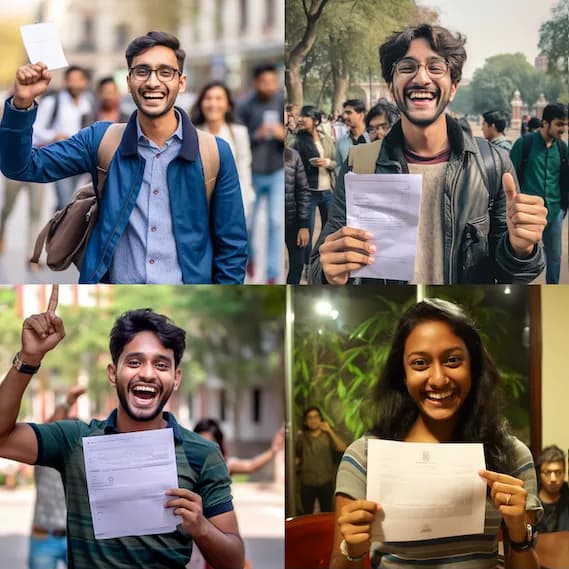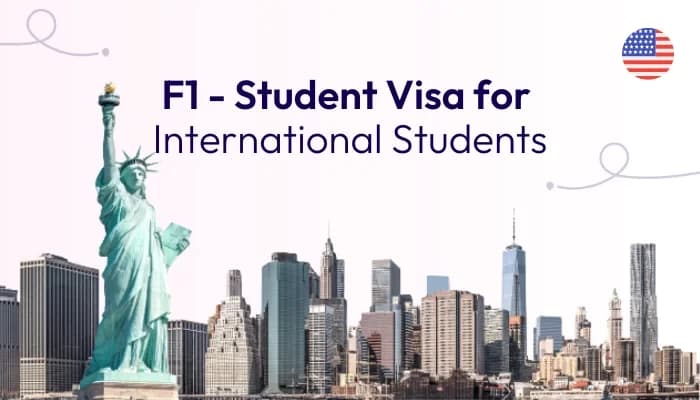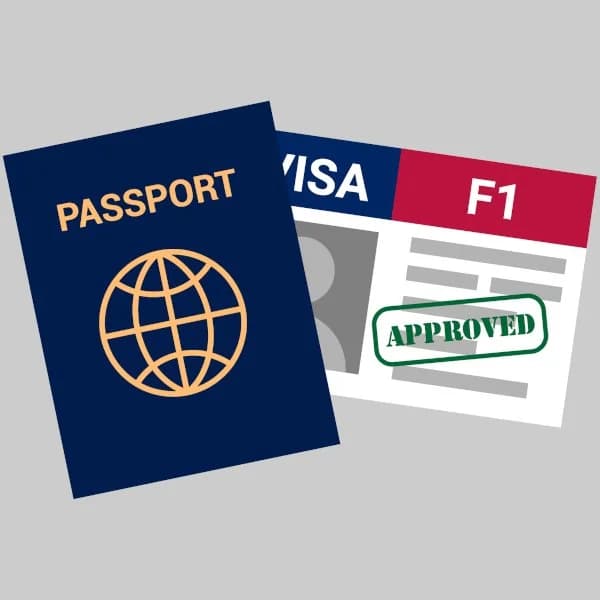How to Tackle 'What Will You Do If I Reject Your F1 Visa?' question in a US Visa Interview

Key Highlights
- Remain calm and composed when answering the question about a potential visa rejection.
- Show your determination to study and pursue your educational goals despite any setbacks.
- State your Plan B, such as applying to universities in other countries or reapplying with better preparation.
- Express your respect for the visa application process and the consular officer’s decision.
- Be prepared with a clear and respectful answer that demonstrates resilience, commitment, and foresight.
"What will you do if I reject your F1 visa?" or "What will be your next step if you don't get this visa?" " is a common but tricky questions that comes up in the F-1 visa interview. This question might seem daunting at first but with careful preparetion, you can answer it smoothly. You have to use this question as an opportunity to showcase your resilience, unwavering commitment to your education, and ability to think ahead and plan. In this article, we will delve into understanding the rationale behind the question and present a step-by-step approach to formulate an effective response. Moreover, we will explore sample answers to help you navigate your way through this potential minefield with confidence and ease.
Step 1: Remain Calm and Composed
First and foremost, don't panic or let the question unsettle you. The consular officer is not implying that your visa will be rejected. Instead, they are testing your reactions and resilience. Maintain a calm and composed demeanor and take a moment to organize your thoughts before answering.
Example: When the visa officer asks, "What will you do if I reject your F1 visa?", instead of reacting immediately or showing signs of stress or fear, pause for a moment, maintain eye contact, and take a deep breath. This will demonstrate that you are thoughtful and composed, not easily flustered by unexpected situations.
Step 2: Show Your Determination to Study
Use your answer to express your unwavering commitment to your educational goals. Demonstrate that, while a rejection would be a setback, it wouldn't deter you from pursuing your intended course of study.
Example: You can express your determination by saying something like, "A rejection would certainly be disappointing, but it would not deter me from pursuing my educational goals. I am deeply committed to earning my degree in Business Administration, and if my F1 visa application is denied, I would look into all other possible avenues to continue my education."
Step 3: State Your Plan B
It's beneficial to have a 'Plan B' if your F1 visa application is not approved. This could be applying to universities in other countries or reapplying for the visa with better preparation and documents. Clearly explain your backup plan to show that you're organized and determined.
Example: Clearly explain your backup plan by stating, "If my F1 visa application were rejected, I would take the time to understand the reasons behind the decision and work to address any issues in my reapplication. Alternatively, I have also researched universities in Canada and UK offering similar programs and could consider applying to those institutions."
Step 4: Express Your Respect for the Visa Process
Finally, make sure to express your understanding and respect for the visa application process and the officer's decision. It's important to maintain a respectful tone throughout.
Example: Show your understanding and respect for the process by concluding your answer like this, "Regardless of the outcome, I respect the rigorous process in place for issuing F1 visas. I understand that each decision is made to uphold the integrity of the system, and I will abide by the final verdict of the consular officer."
Now, let's consider some sample answers and the reasoning behind each:
Sample Answer 1:
"If my visa is rejected, I would first try to understand the reasons for the rejection. I respect the rigorous process that the U.S. Consulate has in place for visa applications. If I can address the issues, I would certainly reapply for the visa, as pursuing my degree in the United States is important for my academic and professional goals."
Reasoning:
This answer demonstrates the candidate's commitment to their education and respect for the visa process. It shows resilience and an understanding that there might be aspects of the application they could improve upon.
Sample Answer 2:
"I am deeply committed to my educational goals, so a visa rejection would certainly be disappointing. However, I also have a contingency plan. I've applied to some top-tier universities in Canada and Australia. If my F1 visa is rejected, I will consider accepting one of those offers. But, I truly believe that studying in the U.S. aligns best with my career objectives."
Reasoning:
This response shows determination and planning. It reassures the interviewer that the applicant will continue with their education, even if it is not in the U.S., while still emphasizing their preference for studying in the U.S.
Sample Answer 3:
"In the unfortunate event of a visa rejection, I will respect the decision made by the consulate. I understand that every rejection has a valid reason. If possible, I would try to rectify any issues and reapply, because studying in the U.S. is my first preference due to its world-class education system and research facilities."
Reasoning:
This answer conveys resilience and respect for the consulate's decision, while again highlighting the candidate's strong preference for studying in the U.S.
Conclusion
Remember that this question is asked to understand your mindset, commitment, and preparedness for different outcomes. Demonstrating resilience, foresight, and an unwavering commitment to your educational goals are key in formulating an effective response. The sample answers provided in this article are designed to serve as a guide, aiding you in structuring your unique response. However, the best answers will always be the ones that truthfully reflect your individual circumstances, plans, and aspirations. Therefore, when preparing for your interview, take the time to consider your personal journey and future plans.
Being prepared, sincere, and respectful in your F1 visa interview are vital ingredients to increase your chances of a positive outcome. As you stand on the threshold of this exciting academic adventure in the United States, we wish you all the best in your visa interview.
Have Questions About This Topic?
Join our community to get personalized advice and share experiences with others going through similar visa processes.





